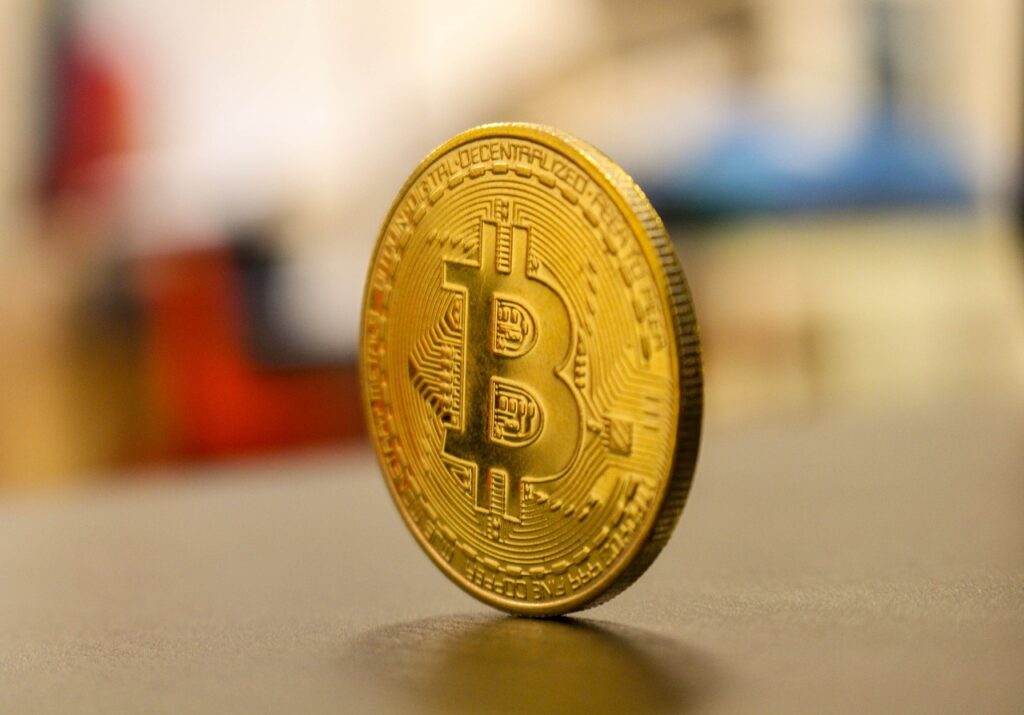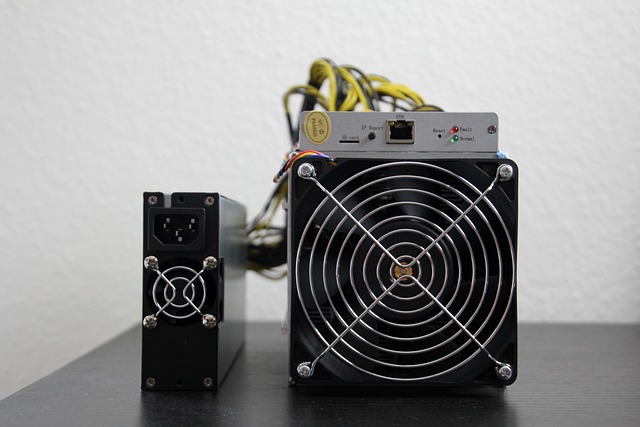Demystifying Decentralized Finance: A Clear Definition
Demystifying Decentralized Finance: A Clear Definition

What is Decentralized Finance?
Decentralized finance, often referred to as DeFi, is a revolutionary concept that aims to transform the traditional financial landscape. In simple terms, DeFi eliminates the need for intermediaries like banks, insurance companies, and brokerage firms by leveraging blockchain technology and smart contracts. This means that individuals can directly interact with and utilize financial services in a decentralized manner, without relying on centralized authorities.
One of the key characteristics of DeFi is its open and transparent nature. Unlike traditional finance, where financial activities are controlled and monitored by authoritative bodies, DeFi operates on a public blockchain network. This means that anyone can access and verify the transactions and operations taking place within the decentralized finance ecosystem. Additionally, DeFi offers a wide range of financial products and services, including decentralized lending and borrowing, decentralized exchanges, yield farming, and prediction markets, among others. These aspects combine to create a truly inclusive and accessible financial ecosystem that is available to anyone with an internet connection and compatible digital wallet.
Decentralized finance has gained significant popularity in recent years because of its potential to revolutionize the financial industry. Traditional finance has long been plagued by issues such as high fees, slow transaction times, and limited access for the unbanked population. By harnessing the power of blockchain technology, DeFi can provide faster, more cost-effective, and inclusive financial services to individuals across the globe. Furthermore, decentralized finance introduces the concept of algorithmic governance, where decision-making is driven by smart contracts and community voting rather than centralized authorities. This creates a more democratic and equitable financial system where users have a say in the direction and development of the ecosystem.
What are the Key Features of Decentralized Finance?
Key Features of Decentralized Finance
Decentralized finance, or DeFi, is revolutionizing the traditional financial landscape by offering a set of unique features. One of the primary features of DeFi is its decentralized nature.

Another key feature of DeFi is its open and permissionless nature. Traditional financial systems often restrict access to financial services based on factors such as location, identity, or wealth. However, with DeFi, anyone with an internet connection can participate and access a wide range of financial services. This inclusivity opens up opportunities for individuals who are unbanked or underbanked, giving them access to loans, savings, investments, and other financial instruments. Furthermore, DeFi allows users to retain control over their assets, as they are not stored or managed by a central entity. Instead, users hold their private keys, giving them complete ownership and control over their funds.
Why is Decentralized Finance Gaining Popularity?
Decentralized finance, also known as DeFi, is experiencing a surge in popularity for several key reasons. First and foremost, DeFi offers a more inclusive and accessible financial system. Traditional finance often excludes individuals who lack access to banks or financial institutions due to various socioeconomic factors. However, DeFi allows anyone with an internet connection to participate in the global financial ecosystem, creating opportunities for billions of unbanked individuals around the world.
In addition to inclusivity, DeFi also offers enhanced transparency and security. By leveraging blockchain technology, decentralized finance eliminates the need for third-party intermediaries, such as banks. This decentralized nature ensures that transactions are recorded on an immutable and transparent public ledger, reducing the potential for fraud and manipulation. Furthermore, smart contracts, which are at the core of DeFi applications, enforce agreements between parties automatically, eliminating the need for trust in traditional financial relationships. As a result, individuals are drawn to DeFi as it provides a more secure and trustworthy alternative to the traditional financial system.
• DeFi offers a more inclusive and accessible financial system, allowing anyone with an internet connection to participate in the global financial ecosystem.
• Traditional finance often excludes individuals who lack access to banks or financial institutions due to socioeconomic factors, but DeFi creates opportunities for billions of unbanked individuals around the world.
• Decentralized finance enhances transparency and security by leveraging blockchain technology, eliminating the need for third-party intermediaries like banks.
• Transactions are recorded on an immutable and transparent public ledger, reducing the potential for fraud and manipulation.
• Smart contracts, at the core of DeFi applications, automatically enforce agreements between parties, eliminating the need for trust in traditional financial relationships.
• Individuals are drawn to DeFi as it provides a more secure and trustworthy alternative to the traditional financial system.
How Does Decentralized Finance Work?
Decentralized finance, also known as DeFi, works by utilizing blockchain technology to create an open and trustless financial ecosystem. In this system, traditional intermediaries such as banks and brokers are replaced by smart contracts and decentralized applications, or DApps. These smart contracts, built on blockchain networks like Ethereum, enable the execution of financial transactions without the need for a central authority.
One of the key features of DeFi is its ability to provide financial services without relying on traditional institutions. Users can lend, borrow, trade, and invest in digital assets with no intermediaries involved, eliminating barriers to entry and enabling anyone with an internet connection to access these services. This decentralized approach also enables greater transparency and reduces the potential for fraud, as all transactions are recorded on the blockchain and can be verified by anyone. By leveraging the power of blockchain technology, decentralized finance aims to democratize financial services and foster a more inclusive global economy.
The Potential Benefits of Decentralized Finance
Decentralized finance (DeFi) has the potential to bring about numerous benefits to the financial landscape. Firstly, one of the main advantages of DeFi is increased accessibility. Unlike traditional finance, which often requires intermediaries and is limited to certain geographical locations, DeFi allows anyone with an internet connection to participate. This opens up opportunities for individuals who previously had limited access to financial services, such as those in unbanked or underbanked regions.
Additionally, DeFi can promote financial inclusivity by offering a wide range of innovative financial products and services. With DeFi, individuals can engage in lending, borrowing, and earning interest on their digital assets without needing to rely on a traditional banking institution. Moreover, DeFi smart contracts can provide automated and transparent processes, reducing the need for intermediaries and potentially lowering costs for consumers. This democratized approach to finance has the potential to empower individuals and foster economic growth in various communities.
Risks and Challenges in Decentralized Finance
While decentralized finance (DeFi) holds considerable promise, it is not without its risks and challenges. One of the main concerns is the lack of regulation and oversight in the decentralized ecosystem. Unlike traditional finance, where authorities like central banks and regulatory bodies play a significant role, DeFi is built on smart contracts that operate without intermediaries. This lack of regulatory control opens the door to potential fraudulent activities, such as scams, hacks, and market manipulation. Without proper safeguards, users are more vulnerable to these risks, as there is no central authority to turn to for assistance or protection.
Another challenge in DeFi lies in its complexity and newness. The technology and concepts behind decentralized finance can be confusing for the average individual, making it difficult for widespread adoption. Understanding how smart contracts work, managing digital wallets securely, and navigating the various protocols and platforms can be overwhelming for those unfamiliar with the space. Moreover, the constantly evolving nature of DeFi means that updates and changes happen frequently, requiring users to stay informed and adapt to new developments. With the lack of user-friendly interfaces and educational resources, the learning curve for DeFi can be steep, posing a barrier to entry for many potential users.
Exploring Decentralized Finance Use Cases
Decentralized finance (DeFi) brings forth a world of possibilities by leveraging blockchain technology in various use cases. One prominent use case is decentralized lending and borrowing. Traditional financial systems have always relied on intermediaries like banks to facilitate lending and borrowing transactions. However, DeFi platforms enable individuals to lend and borrow directly from each other without needing an intermediary. This not only eliminates the need for middlemen but also opens up opportunities for individuals who may not have access to traditional banking services. By simply connecting to a DeFi platform, individuals can borrow funds at competitive interest rates or lend their crypto assets to earn passive income.
Another exciting use case of DeFi is decentralized exchanges (DEXs), which provide an alternative to traditional centralized exchanges. DEXs allow users to trade cryptocurrencies directly from their wallets, removing the need for intermediaries. This brings greater security and control over one’s assets as users do not need to trust a centralized entity with their funds. Moreover, DEXs enable individuals to trade without needing to provide personal information, ensuring privacy and anonymity. With the exponential growth of DeFi, DEXs have gained significant popularity, offering a transparent and efficient way to trade cryptocurrencies.
The Role of Blockchain Technology in Decentralized Finance
In the realm of decentralized finance (DeFi), blockchain technology plays a critical and transformative role. It serves as the technological backbone that enables the entire system to operate without the need for intermediaries such as banks or other centralized institutions. This groundbreaking technology facilitates secure and transparent transactions, allowing individuals to engage in financial activities without relying on traditional financial infrastructure.
At the core of blockchain technology’s role in DeFi is its ability to create a distributed ledger. This ledger is decentralized, meaning it is not controlled by a single entity but rather by a network of participants who validate and record transactions. By doing so, blockchain technology eliminates the need for trusted intermediaries, making financial processes more efficient, cost-effective, and open to anyone with an internet connection. Additionally, the immutability of blockchain records ensures transparency and reduces the risk of fraud, instilling trust in the system. As we delve deeper into the world of decentralized finance, continuously evolving blockchain technology will undoubtedly continue to underpin its growth and potential.
Comparing Decentralized Finance to Traditional Finance
Traditional finance, as we know it, operates within a centralized system where intermediaries such as banks, regulatory bodies, and middlemen play a significant role in facilitating transactions. This system comes with its own set of rules, regulations, and fees, giving rise to a hierarchical structure. On the other hand, decentralized finance aims to disrupt this centralized model by utilizing blockchain technology and smart contracts. Instead of relying on intermediaries, decentralized finance provides a peer-to-peer network that enables direct transactions between individuals, removing the need for third-party involvement.
One of the key differences between decentralized finance and traditional finance lies in accessibility. In traditional finance, individuals often face barriers to entry, such as credit checks or income requirements, which can prevent them from accessing financial services. However, in decentralized finance, anyone with an internet connection can participate and transact freely, irrespective of their background or location. This democratization of financial services not only empowers individuals but also opens up opportunities for the unbanked population to access financial tools previously out of their reach.
The Future Outlook of Decentralized Finance
As the world becomes more digitally connected, the future outlook of decentralized finance looks exceedingly bright. With its ability to provide financial services without the need for intermediaries, decentralized finance has the potential to revolutionize the way we transact and manage our money.
One of the key factors driving the future of decentralized finance is its increased accessibility. Unlike traditional financial systems, which often have high barriers to entry, decentralized finance enables anyone with an internet connection to participate.

Another exciting aspect of the future of decentralized finance is the potential for innovation and experimentation. With decentralized finance being built on blockchain technology, developers have the opportunity to create and launch new financial products and services at a rapid pace. This constant innovation drives competition and pushes the boundaries of what is possible in the world of finance. As more individuals and institutions embrace decentralized finance, we can expect to see a plethora of innovative solutions that challenge traditional financial systems and reshape the way we interact with money.
What is decentralized finance?
Decentralized finance, also known as DeFi, refers to a new system of financial services that operate on decentralized networks, primarily based on blockchain technology.
What are the key features of decentralized finance?
The key features of decentralized finance include the elimination of intermediaries, open and permissionless access, transparency, programmability, and the ability to create and trade digital assets.
Why is decentralized finance gaining popularity?
Decentralized finance is gaining popularity due to its potential to provide financial services to the unbanked, reduce costs, improve efficiency, increase financial inclusion, and offer innovative solutions that traditional finance cannot provide.
How does decentralized finance work?
Decentralized finance works by utilizing smart contracts on blockchain platforms to automate and execute financial transactions and agreements.

What are the potential benefits of decentralized finance?
Some potential benefits of decentralized finance include lower fees, faster transactions, increased financial control, improved privacy, global accessibility, and the ability to create and participate in decentralized markets.
What are the risks and challenges in decentralized finance?
Risks and challenges in decentralized finance include smart contract vulnerabilities, regulatory uncertainties, limited scalability, user error risks, potential for hacks and security breaches, and the need for interoperability between different blockchain platforms.
What are some use cases of decentralized finance?
Decentralized finance has various use cases, including decentralized lending and borrowing, decentralized exchanges, stablecoins, prediction markets, decentralized insurance, decentralized asset management, and peer-to-peer payments.
What is the role of blockchain technology in decentralized finance?
Blockchain technology plays a crucial role in decentralized finance by providing the underlying infrastructure for secure and transparent transactions, enabling programmable money, and ensuring the immutability of financial records.
How does decentralized finance compare to traditional finance?
Decentralized finance differs from traditional finance by removing the need for intermediaries, offering global accessibility, enabling financial innovation, and providing greater financial control to individuals. However, it also faces challenges in terms of scalability, regulatory compliance, and acceptance by the mainstream financial industry.
What is the future outlook of decentralized finance?
The future outlook of decentralized finance is promising, with the potential to disrupt traditional financial systems, increase financial inclusivity, foster innovation, and create new economic opportunities. However, it will also require addressing scalability, security, and regulatory challenges to achieve widespread adoption.
Todays Featured Product:
Buy, exchange and grow your crypto securely with a Ledger hardware wallet, combined with the Ledger Live app. It’s never been easier to keep your crypto safe and accessible. Buy direct from Ledger.com and get todays Special Offers Here.




